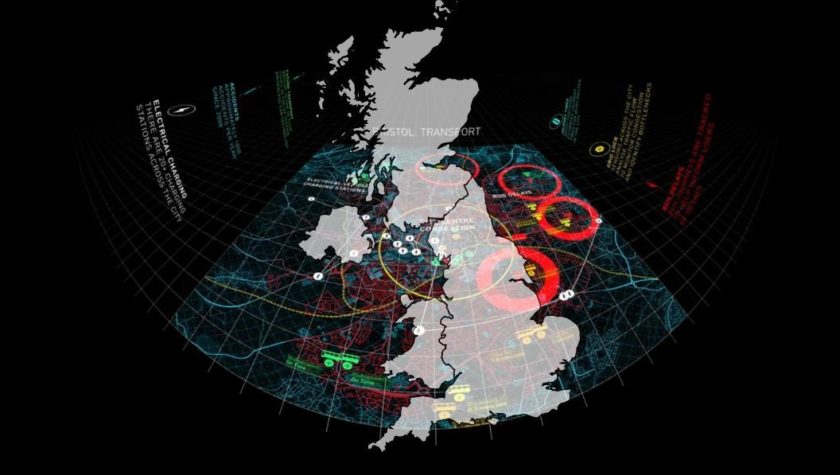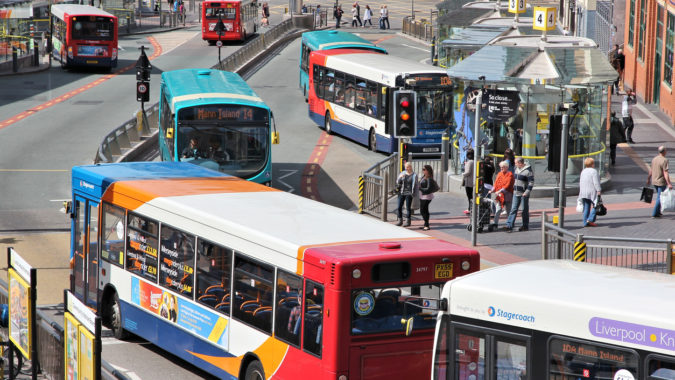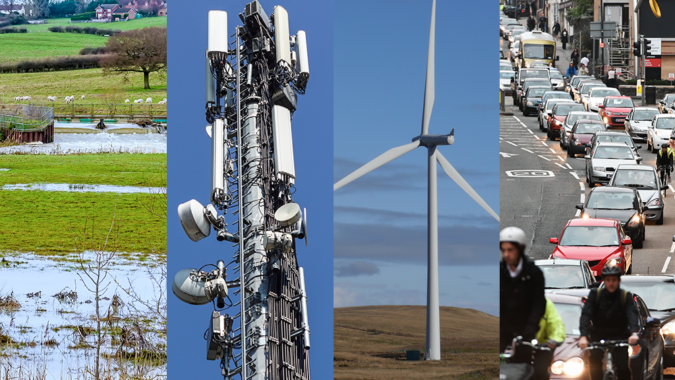Data for the public good is the culmination of many months of examining the very latest technologies, what could be achieved if they were applied to our infrastructure network, and what we need to do to make the most of the opportunities they offer. It is a crucial area for an organisation like the National Infrastructure Commission to look at – considering how we want our country to function over the next thirty years, and what inventions and innovations may be available to us over that time.
It’s a study that I’m proud to have led, working and consulting with some of the leading lights in the fields of artificial intelligence and machine learning in this country to ensure we reflect the very latest developments underway in Government, academia and in industry. And as we’ve done so, the same concept has come up again and again: the idea of a Digital Twin.
Anyone unfamiliar with this may have thought I was looking for a virtual doppelganger to work with me on this project! But in fact, this is the idea that we could create a digital blueprint of the UK’s infrastructure network, using data updated in real time. It would mirror how infrastructure is used currently, and could be used to plan for new projects in the future. And it could be used to better plan repairs to reduce delays and disruption for the public. It would help to assess to when a piece of infrastructure may need maintenance work, how much demand it is likely to face in its lifetime and how long that lifetime could be.
This is not an entirely new concept – Singapore has already been working on a digital twin, for example. For Britain, it would need to be on a completely different scale. Our infrastructure network is older, and more complex. It makes sense to start with a pilot project of a specific geographic area and to model infrastructure in that region so we can test out what’s possible before we think about scaling it up. As world-leaders in this technology, the ambition would be for the digital twin to also have predictive capabilities. It could test out possible solutions to challenges that could be faced in the future: for example, how could a city’s transport system be adapted to accommodate a doubling in its population? Or how could the transport to a hospital be designed to maximum effect, whether creating a new car park, adapting a local bus service, or changing traffic flows and appointment scheduling?
As this became an ever-greater focus of our work in this area, we wanted to test what capabilities we have to achieve this. That’s why in September we launched the Digital Twin Data Challenge, working with the UK Collaboratorium for Research on Infrastructure and Cities (UKCRIC) to encourage industry, academics and the public sector to come together and consider the implications of the technology – and to create a digital twin using infrastructure data from the city of Bristol. This, and the associated Thinkathon at the Bristol Mshed, generated significant interest, including from some of the newest and most innovative companies in the field – but it also demonstrated the challenge of doing this quickly without coordination across the key players.
That’s why today’s report makes the key recommendation that there must be a culture shift away from the blanket use of commercial confidentiality arguments to withhold data, and towards greater data sharing, with suitable safeguards in place. Without that sharing, this digital twin may not be possible – and may mean the UK misses out on an opportunity to get more out of existing infrastructure and to better plan for the future. And it’s why we’re recommending that the Centre for Digital Built Britain and the Alan Turing Institute work together on a pilot Digital Twin project, as a proof of concept.
A digital twin could revolutionise the way we manage and plan our infrastructure, and could make a real difference to the lives of those who rely on it. That will require a change in our collective mindset towards sharing anonymous and commercial data to make this a reality. But the real asset we have in this country are the committed group of experts who have the skills and vision to make this happen – the recommendations in this report all aim to help bring them together to work on this, which ultimately would be for the public good.



